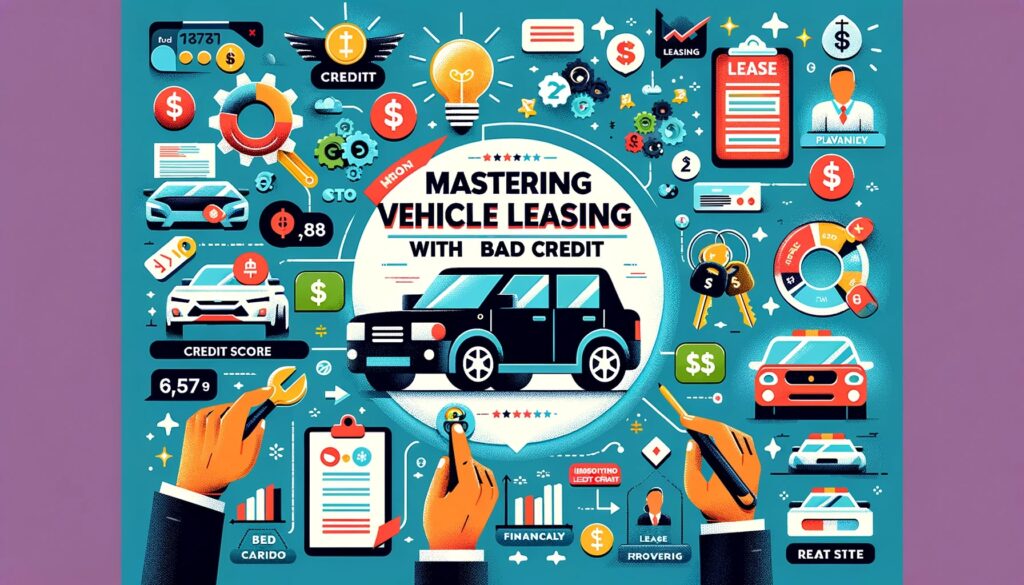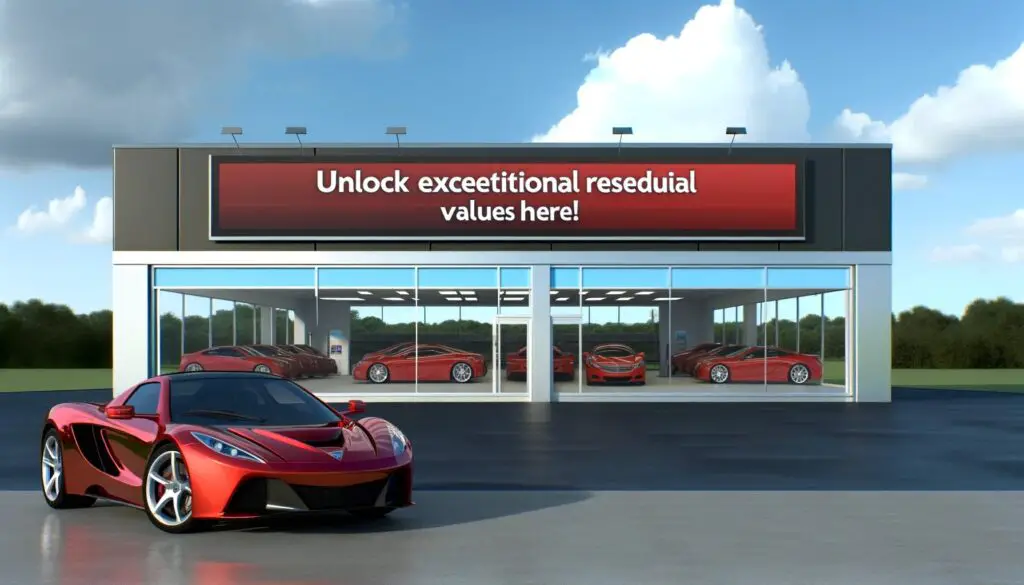In the realm of vehicle leasing, overcoming the challenges posed by bad credit demands a strategic and informed approach. Despite the hurdles, it’s entirely feasible to secure a lease that meets your transportation needs while simultaneously rebuilding your credit. In this comprehensive guide, we’ll delve into the intricacies of leasing a vehicle with bad credit, empowering you with the knowledge and strategies necessary to navigate this process with confidence.
Understanding Bad Credit and Its Implications
Before diving into the leasing process, it’s crucial to grasp the implications of bad credit. Generally, bad credit refers to a credit score below 620, although thresholds may vary among lenders and lessors. Individuals with bad credit often face higher interest rates, stricter lease terms, and limited vehicle options, which can result in higher overall costs and reduced flexibility.
Preparing for Success: Initial Steps and Considerations
Assessing Your Credit Score
When preparing to lease a vehicle with bad credit, assessing your credit score is the crucial first step towards understanding your financial standing. Here’s how to approach this process:
- Obtain Your Credit Report: Begin by obtaining a copy of your credit report from one of the major credit bureaus—Equifax, Experian, or TransUnion. You’re entitled to one free credit report annually from each bureau, which you can request online or by mail.
- Review Your Credit Report: Carefully review your credit report to identify any errors, inaccuracies, or derogatory marks that may be negatively impacting your credit score. Pay close attention to details such as missed payments, outstanding debts, and credit inquiries.
- Understand Your Credit Score: Your credit score provides a numerical representation of your creditworthiness based on factors such as payment history, credit utilization, length of credit history, and types of credit accounts. Understanding your credit score will help you gauge where you stand in the eyes of lenders and lessors.
- Identify Areas for Improvement: Use your credit report to identify areas for improvement in your credit profile. This may include addressing outstanding debts, making timely payments, and reducing credit card balances. By pinpointing areas of weakness, you can take proactive steps to improve your credit score over time.
- Establish a Baseline for Negotiation: Armed with knowledge of your credit score and financial history, you’ll be better equipped to negotiate lease terms with dealerships and lessors. A higher credit score may result in more favorable lease terms, such as lower interest rates and reduced down payments.
Exploring Alternative Transportation Solutions
While leasing a vehicle may be your desired mode of transportation, it’s essential to consider alternative options to ensure you make the most informed decision for your circumstances. Here’s why exploring alternative transportation solutions is beneficial:
- Cost Considerations: Evaluate the costs associated with leasing a vehicle compared to alternative transportation options such as carpooling, public transit, or ridesharing services. Consider factors such as monthly payments, insurance premiums, fuel expenses, and maintenance costs.
- Environmental Impact: Assess the environmental impact of different transportation options, especially if sustainability is a priority for you. Public transit, carpooling, and cycling are often more environmentally friendly alternatives to single-occupancy vehicle use.
- Convenience and Accessibility: Consider the convenience and accessibility of alternative transportation options in your area. Evaluate factors such as proximity to public transit routes, availability of carpooling or ridesharing services, and ease of access to essential destinations such as work, school, and grocery stores.
- Flexibility and Mobility: Explore the flexibility and mobility offered by alternative transportation solutions. While leasing a vehicle provides a high degree of personal mobility, alternative options such as public transit or ridesharing services may offer greater flexibility in certain situations, such as during peak traffic hours or inclement weather conditions.
- Overall Lifestyle Considerations: Take into account your overall lifestyle and transportation needs when considering alternative options. Considerations such as family size, commuting distance, and frequency of travel can all influence the suitability of different transportation solutions for your individual circumstances.
By thoroughly exploring alternative transportation solutions and considering factors such as cost, environmental impact, convenience, flexibility, and lifestyle considerations, you can make an informed decision that aligns with your needs and priorities.
Strategies for Securing a Lease with Bad Credit
Maximizing Your Lease Experience: Additional Tips and Considerations
To ensure a positive and fulfilling leasing experience, consider the following additional tips and considerations:
Leasing a Used Car
Opting to lease a used vehicle can offer several advantages, particularly for individuals with bad credit. Here’s why leasing a used car may be beneficial:
- Lower Monthly Payments: Used cars typically have lower monthly lease payments compared to new vehicles, making them more affordable for individuals on a budget.
- Reduced Depreciation Costs: Used cars have already experienced significant depreciation, meaning you won’t bear the brunt of the vehicle’s depreciation during the lease term. This can result in overall cost savings.
- Thorough Research and Inspections: Before leasing a used car, conduct thorough research and inspections to ensure you select a reliable vehicle that meets your needs and budget. Look for vehicles with low mileage, a clean maintenance history, and minimal wear and tear.
Prioritizing Reliability and Fuel Efficiency
When selecting a vehicle to lease, prioritize reliability and fuel efficiency to minimize long-term expenses associated with vehicle ownership. Here’s why these factors are crucial:
- Dependability: Choose a car with a solid track record for reliability to minimize the risk of unexpected repairs and maintenance costs during the lease term. Consider researching reliability ratings and customer reviews to gauge the dependability of different vehicle models.
- Economical Fuel Consumption: Opt for a vehicle with economical fuel consumption to reduce fuel expenses over the lease term. Look for cars with high fuel efficiency ratings, such as hybrid or electric vehicles, to minimize your environmental impact and save money on fuel costs.
Maintaining Transparency
Maintaining honesty and transparency throughout the leasing process is essential for building trust and cooperation with dealerships and lenders. Here’s how you can ensure transparency:
- Communicate Your Financial Situation: Clearly communicate your financial situation, including any challenges or circumstances that may affect your ability to lease a vehicle. Being transparent about your credit history and financial constraints allows dealerships and lenders to provide tailored solutions and assistance.
- Review Lease Terms Thoroughly: Before signing a lease agreement, review the terms and conditions carefully to ensure you understand all obligations, fees, and penalties. If there are any uncertainties or concerns, don’t hesitate to seek clarification from the dealership or lender.
By following these additional tips and considerations, you can maximize your lease experience and ensure a smooth and rewarding leasing journey. Prioritize reliability, transparency, and cost-effectiveness to secure a lease that meets your transportation needs and financial goals.
Bad Credit? No Problem! How to Get Auto Credit
If you have bad credit, obtaining auto credit may seem like a daunting task, but it’s entirely possible with the right approach. Here’s how to navigate the process and secure auto credit even with less-than-ideal credit scores
Frequently Asked Questions (FAQs)
What is considered bad credit when leasing a vehicle?
Bad credit typically refers to a credit score below 620, though thresholds may vary.
Can I lease a car with no credit history?
While challenging, leasing without a credit history is possible with alternative arrangements such as larger down payments or co-signers.
How can I find subprime lenders specializing in bad credit leasing?
Researching online or consulting with local dealerships can help identify subprime lenders willing to work with individuals with poor credit.
Is it possible to negotiate lease terms with bad credit?
Yes, negotiation is feasible with bad credit, though terms may be less favorable compared to excellent credit.
What are the risks of leasing with bad credit?
Risks include higher interest rates, stricter lease terms, and limited vehicle options, potentially leading to higher overall costs and reduced flexibility.
What Credit Score Do You Need to Lease a Car ?
The credit score required to lease a car can vary depending on the lender, dealership, and the specific terms of the lease agreement. In general, however, most lenders and dealerships prefer lessees to have a credit score of at least 620 or higher to qualify for a lease. This score falls within the “fair” to “good” range on the credit score spectrum.
Conclusion: Empowering You to Lease with Confidence
In conclusion, leasing a vehicle with bad credit is achievable with the right approach and strategies in place. By following the steps outlined in this guide and leveraging alternative options where necessary, you can secure a lease that meets your transportation needs while rebuilding your credit standing. Remember to conduct thorough research, negotiate diligently, and maintain transparency throughout the process to maximize your leasing experience.





